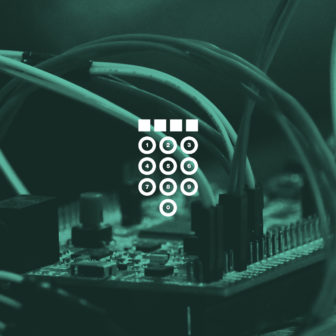Tag: Internet Governance

Update: Delfi case heard at top European human rights court
On July 9th, the Grand Chamber of the European Court of Human Rights, its very highest body and one of the top human rights courts in the world, held a hearing on the landmark case of Delfi, an Estonian news outlet held liable for comments posted by users.

Reflections on the WSIS+10 High Level Event
From the 10th to the 13th of June, the World Summit on the Information Society (WSIS) held the capstone event of its ten year review, the WSIS+10 High Level Event. Two important documents were endorsed at this event, a statement on the implementation of the WSIS Outcomes enshrined in the 2005 Tunis Agenda, and a second document articulating a vision beyond 2015.
Statement on WSIS+10 HLE
On the 13th of June in Geneva, the WSIS + 10 High Level Event (WSIS + 10 HLE) concluded, culminating in the endorsement of two outcome documents, the WSIS+10 Statement on the Implementation of WSIS Outcomes, and the WSIS+10 Vision for WSIS Beyond 2015.
At the conclusion of the HLE, Access joined APC, CDT, CTS/FGV, Global Partners Digital, IFLA, the Internet Democracy Project, IDEA, and KICTAnet in making the following statement.
Access urges immediate action to end bulk collection
Access calls on the Executive Branch to seize the opportunity to end the NSA’s bulk telephony collection program this week.
YouTube ban removed in Turkey after 67 days, but censorship threats persist
Following 67 days of censorship, YouTube was unblocked in Turkey on Tuesday following a ruling last week by the Constitutional Court that the ban violates freedom of expression. While Access welcomes the Court’s decision, the underlying legal frameworks allowing such censorship still exist.
Looking at the outcome document of NetMundial
Outcome document of the global multi-stakeholder meeting on the future of internet governance
Africa moves towards a common cyber security legal framework
Over June 20-27, the AU Heads of State will be meeting where they’re expected to adopt a new Convention on Cyber Security and Personal Data Protection. While Access and other partners criticized an earlier draft of the Convention, the rewritten draft has yet to be released to the public, even as it races closer to adoption.
Spotlight on African Contributions to Internet Governance Discussions: Part Three: ITU-CWG internet
CWG-Internet has the mandate to identify, study, and develop matters related to specific international internet-related public policy issues [1]. An ongoing issue CWG-Internet has sought to address is the question of the role of governments in internet governance. This issue is at the core of a questionnaire sent to all ITU member states on behalf of CWG-Internet on November 22, 2013.
The questionnaire was intended to launch a consultation among governments on their role in the internet-related public policy issues covered in Resolution 1305, the results of which were discussed at its March session. Among the 193 ITU member states that received the questionnaire, 54 were African governments. Responses included specific examples of actions to address internet policy issues as well as opinions on the general nature of the role of governments in internet governance and of the 37 Member States that responded, six were from Africa: Botswana, Mauritius, Morocco, Rwanda, Sudan and Zambia.
What did Africa Get out of NetMundial Internet Governance Discussions?
Our previous analysis of African stakeholders’ contributions to the initial NetMundial open submission process found that stakeholders from Africa emphasized human rights and role of governments in matters of internet governance.
NetMundial: A lot to love and a lot to hate
Access provides analysis of the this week’s NetMundial meeting, noting the highs and lows, and reflecting on what is needed to achieve internet governance that is truly democratic and multistakeholder, ensuring the meaningful and accountable participation of all stakeholders.